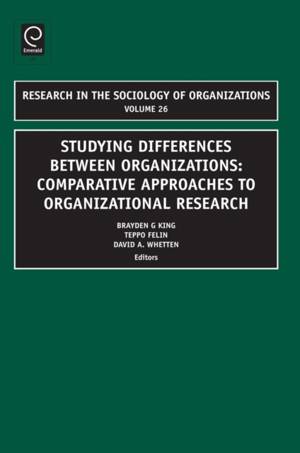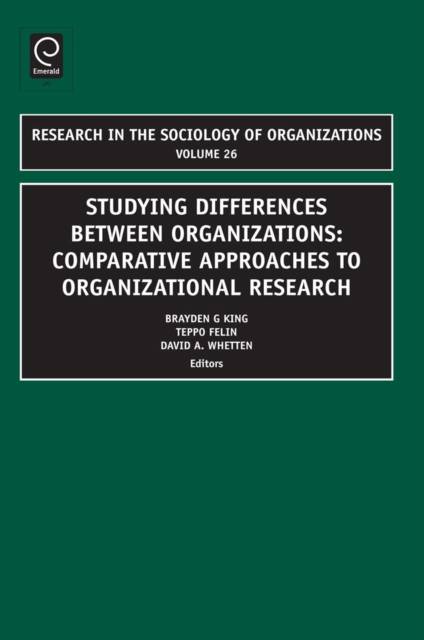
- Afhalen na 1 uur in een winkel met voorraad
- Gratis thuislevering in België vanaf € 30
- Ruim aanbod met 7 miljoen producten
- Afhalen na 1 uur in een winkel met voorraad
- Gratis thuislevering in België vanaf € 30
- Ruim aanbod met 7 miljoen producten
Zoeken
Studying Differences Between Organizations
Comparative Approaches to Organizational Research
€ 122,95
+ 245 punten
Omschrijving
This volume is motivated by key questions and challenges associated with reviving and developing a comparative perspective. One organizing theme of the volume is to present comparative analysis as a means to explain and describe organizational heterogeneity, at varying levels and contexts. While much empirical work looks for the sources of homogeneity within fields, industries, etc., we believe that one advantage of doing comparative analysis is to make assessments of the observed differences between organizations. Thus, we have asked all of the authors to consider how their style of comparative analysis enhances our understanding of organizational heterogeneity. The volume consists of two sections: an introductory essay section and a section where authors focus on specific theoretical, methodological and empirical topics. A couple of papers are original empirical analyses that use a comparative logic or method. We expect that each paper, in addition to providing a theoretical contribution, will offer a meta-discussion that explains how taking a comparative approach enhances our understanding of the phenomenon of interest.
Specificaties
Betrokkenen
- Uitgeverij:
Inhoud
- Aantal bladzijden:
- 300
- Taal:
- Engels
- Reeks:
- Reeksnummer:
- nr. 26
Eigenschappen
- Productcode (EAN):
- 9781848556461
- Verschijningsdatum:
- 9/06/2009
- Uitvoering:
- Hardcover
- Formaat:
- Genaaid
- Afmetingen:
- 152 mm x 229 mm
- Gewicht:
- 544 g

Alleen bij Standaard Boekhandel
+ 245 punten op je klantenkaart van Standaard Boekhandel
Beoordelingen
We publiceren alleen reviews die voldoen aan de voorwaarden voor reviews. Bekijk onze voorwaarden voor reviews.






